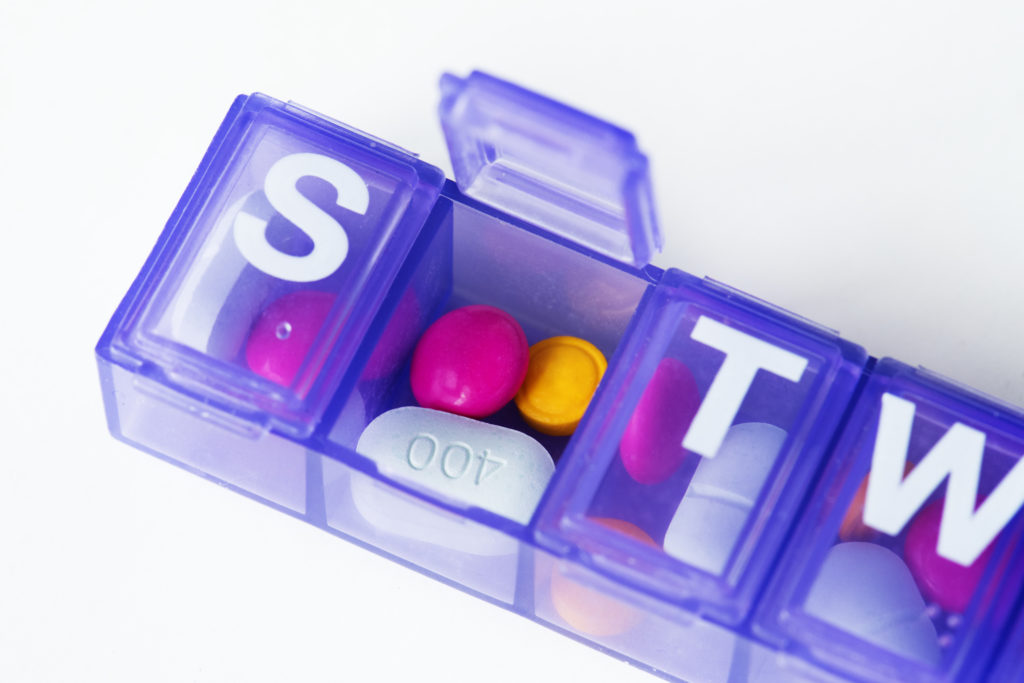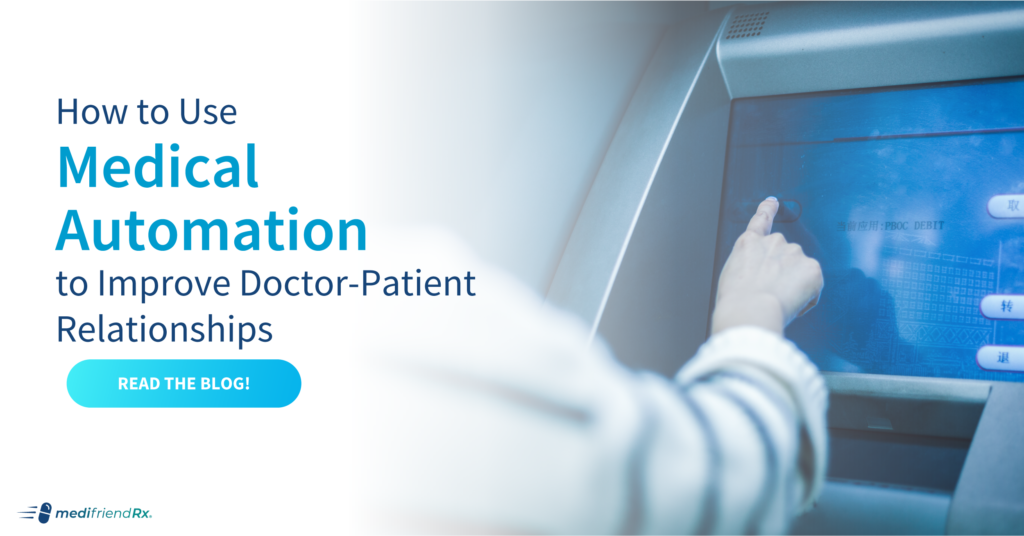Are you getting frustrated with the way your patients and doctors relate to each other?
The complex process of building strong relationships has been a struggle for many in the healthcare industry over the years.
According to William Maples, MD, the number one thing every patient is looking for is a respectful, relatable, and comfortable relationship with their doctor.
However, you cannot lay the blame solely on the attending doctor; other staff members and emerging technology can also play a fundamental role in helping every physician connect with their patient.

Critical technologies like medical automation can have a genuinely positive impact on the formation and continuation of strong relationships between doctors and patients.
What Exactly is Medical Automation?
Medical automation covers a wide array of systems, services, and technologies that work together to simplify elements of the therapeutic process, such as:
- Intake
- Scheduling
- Prescription Delivery
- Delicate Procedures
Software is becoming more and more efficient at performing fundamental AND specialized medical tasks, and are beginning to surpass human performance. Not only can they retain a massive amount of data, but they can also apply specific diagnoses based on previous cases nearly as well as an experienced human doctor can.

Because the benefits of medical automation are growing and evolving steadily, it is vital that practices and clinics consider supplementing their organizations with these new solutions.
How Does Medical Automation Impact Doctor-Patient Relationships?
When you’re looking to build and improve a doctor-patient relationship, you need to think carefully about the entire journey that a patient goes through.
Understanding What The Patient Wants
Patients are demanding more and more from their physicians at the moment. They visit their doctors when they feel most vulnerable and need to put their trust entirely in the person sitting across from them as they share personal details about themselves.
However, when it comes to the doctor-patient relationship, they are not always aligned as you would expect because doctors don’t always know what their patients want from them.

The truth is, all the average patient wants is to be listened to, respected, and to receive honest responses. When this happens, it will ultimately improve outcomes overall, which in turn improves patient adherence.
Patients Must Be The Focus
All in all, if you can put the patient at the center of every decision, it will improve their experience and health outcomes in the long run.
By implementing medical automation solutions, such as the medifriendRx® prescription kiosk, you will be making the patient’s life so much easier by giving them quick and easy access to their prescriptions and medication.
What Different Types of Medical Automation Are Available?
There are a whole host of medical automation tools available that can be utilized to handle different tasks within your facility.

They can identify the types of patient visits, prescreen the patients, monitor patient wait times, automate follow-ups, simplify communication altogether and provide better customer service to all patients.
Some of the main applications that are used in the medical industry right now include:
- Medical transportation robots.
- Robotic surgical assistants.
- Telepresence.
- Robotic prescription dispensing systems.
These automatic technologies are being used to streamline many healthcare operations, which will, in turn, improve the relationships between patients and their doctors.
How Can Medical Automation be Leveraged to Improve Relationships?
When you are trying to improve a doctor-patient relationship you need to involve healthcare automation in some capacity.
When medical automation is involved, you will be able to identify the reasons for patient visits beforehand, which will save time throughout the day. Whether the patient needs a diagnosis, is seeking an injection, or they are just there for a scheduled wellness visit, this can be determined ahead of time.
Waiting Times and Adherence
Similarly, when the patient waiting times are monitored, it will rapidly reduce the number of complaints that a practice receives.
On average, 50% of patients treated for chronic disease do not take their medicine as prescribed, a study on the success of high blood pressure treatments reported. So automation will enhance the patient experience and make them more likely to adhere.

Streamlined Internal Communication
On a similar note, relationships can be improved when the members of staff know exactly what is going on that day.
A short meeting in the morning will give an overview of what is expected, and employees will be able to receive their roles for the day. Automation will help a clinic to steer clear from repetition and cross-communication between different members of staff within the practice.
Reduce Margin for Error
It’s no secret that human error does exist. In fact, in 2018, it was estimated that general practitioners, pharmacies, and hospitals may have been responsible for nearly 237 million medication errors.
The introduction of medical automation solutions can help reduce that potential margin for error significantly. Not only does this reduce compliance risk across the board, but it also helps keep patients happy, healthy, and adherent.

Be Patient
Finally, you need to be patient when it comes to creating a positive change between your patients and physicians.
When there is a shift in culture at a medical practice, you are much more likely to see patient experiences and welfare improve as time goes on.
How Easy Is It To Implement Medical Automation?
As long as you gain the correct guidance and seek out the right tools for you, such as medifriendRx®, automation can be extremely easy to implement.
By introducing these automated tools to your practice or pharmacy, it will free up staff to work with their patients so that they can carry on building those strong and trusting relationships.
Your patients will be much happier with the added convenience, and you will be able to focus on other areas of your healthcare practice as the medical automation does the hard work.
